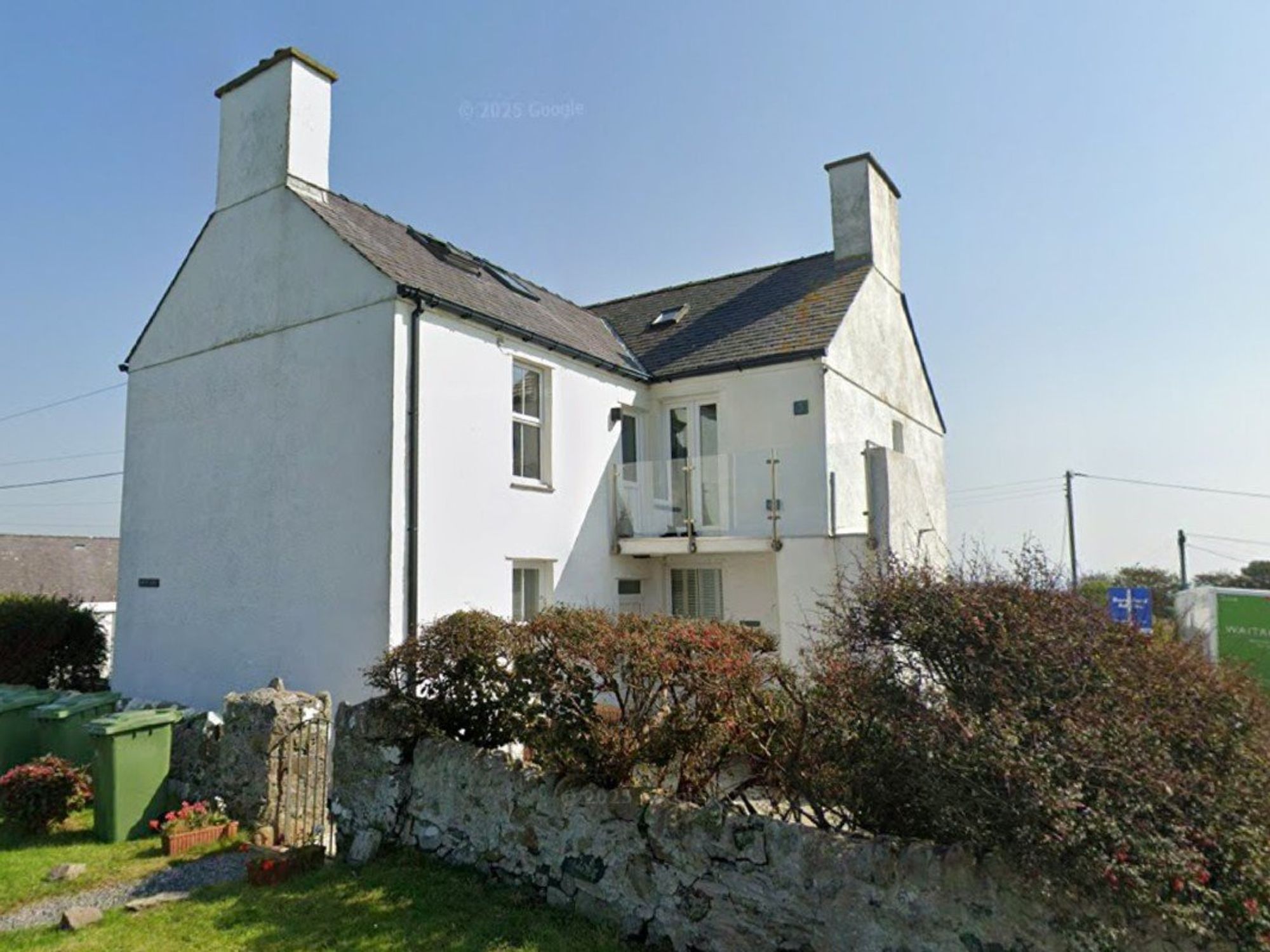Andrew Doyle: Culture warriors are wasting our time, but if we ignore them they'll win

By Andrew Doyle
Published: 22/08/2021
- 19:07Updated: 24/08/2021
- 13:48'The culture war may well be a distraction from the important issues of the day'
Don't Miss
Most Read
Latest
The one thing that all culture warriors have in common is that they are wasting our time. While they’re busy waging their war against social liberalism and free speech, trying to divide us all up according to group identity and inadvertently undoing all the achievements we’ve made since the civil rights movements of the 1960s, there are actual problems in the world.
We have a crisis of homelessness in the UK, we have unjustifiable levels of economic inequality, we have an education system that is failing our young, and all of this is getting worse thanks to this new religion of identity politics. And anyone who points this out, who takes a critical stance against culture warriors, is accused of stoking a culture war. Which is a bit like a sniper blaming his target for the loss of his bullet.
The problem is that if we just ignore the culture warriors, they won’t just disappear. They’ll win. And then all those other things we care about: equality, education, art, the media, liberal values – all of these will crumble. The culture war, in other words, is a distraction, but we can’t afford to be complacent about what it will do to our society if we don’t take a stand.
A lot of it does seem silly though, doesn't it? This week, for instance, a fish and chip shop owner in London was subject to online protests from activists because of the shop’s name.
Jack the Chipper. Recep Turhan opened his first chip shop in Whitechapel, which as we know is the location of the Jack the Ripper murders, but when he opened a second one in Greenwich, activists were furious. Why? Because they claim that Turhan is glorifying a Victorian serial killer.
Look, Jack the Ripper was a long time ago. 1888 to be precise. If comedy is tragedy plus time we really don’t need to worry about this, do we? It’s not like he called the shop “Harold Chipman”, which I admit would be in poor taste. Jack the Ripper, whoever he was, was obviously a vile human being and the deaths of his victims was utterly tragic, but calling a chip shop Jack the Chipper isn’t endorsing his actions. I can’t even believe I’m saying this.
But this is precisely what I’m talking about. It doesn’t really matter that some activists are up in arms over a chip shop. They WOULD know about chips, of course, having such massive ones on their shoulders.
And yes, we can ignore this kind of thing. But the reason I don’t is that it isn’t really about Jack the Chipper. It’s about a broader problem. This kind of mentality, that people must be punished for using the wrong language, doesn’t stop at online petitions over fast food. It’s the same mentality that has seen so many people, including the Law Commission, pushing for stronger hate speech laws. It’s the same mentality that has led to a recent survey showing that 40 percent of the public support the idea of the government censoring books.
It’s the same mentality that has led to a hate campaign against JK Rowling, with activists burning copies of Harry Potter and sharing the footage online. It’s the same mentality that has led the SNP to introduce new draconian speech laws that criminalise citizens for things they say in their own homes. It’s the same mentality that has seen the Tory government pushing for a dangerous online safety bill that would seriously limit the scope of public discussion. I’m not saying the chip shop protest leads to this kind of thing – I’m saying it’s symptomatic of a much bigger problem in society.
Let’s take another example. This week the Arts Council of Wales has issued a report denouncing itself as “systemically racist”.
Why? Because the Welsh language is predominately spoken by white people, and in many cases jobs are only available if the applicant is proficient in the language.
Wales of course has a higher proportion of white people than any other region of the UK – in the 2011 census, 95.6% said they were white. The Welsh language is only spoken by 20% of the country, and they tend to be from more affluent backgrounds. Welsh private schools push the language partly for cultural reasons, but also because so many of the top jobs require that candidates are bilingual. This is why the arts, civil service, higher education and other major institutions in Wales are all dominated by middle-class people. There’s even a pejorative term for it – Crachach. The Welsh establishment.
And, as we know, ethnic minority people predominate in lower income brackets throughout the UK. So this isn’t so much a racial problem as a class one.
And this is the point. We can all laugh about the Arts Council of Wales spending £51,000 to conclude that it is racist. It’s silly because if it were actually true, it would obviously need to lose all public funding immediately because the implementation of racist policies is illegal. This happened in the US when Princeton University declared itself to be “systemically racist," which led to an investigation by the Department of Education on the grounds that racism is a violation of civil-rights law.
Of course Princeton didn’t really mean it, did they? And nor does the Arts Council of Wales. For an institution to declare that it is systemically racist is more often than not a pronouncement of allegiance to the faith of social justice. Of course we need to rigorously oppose racism wherever it occurs. But the Arts Council of Wales isn’t staffed by racists. The issue is class, and this is the thing that gets sidelined whenever things are analysed through the distorting lens of identity politics. This is why I keep emphasising that there is nothing remotely left-wing about the Critical Social Justice movement. Because it’s always the poor who lose out.
Meanwhile, the cult of wokeness has left many people seemingly incapable of understanding the threat to women posed by the Taliban. The prime minister of New Zealand Jacinda Ardern called on the Taliban to “uphold human rights”. French minister Jean-Yves Le Drian said "We need an inclusive government that shows that the Taliban have changed". Others have taken at face value the Taliban spokesperson’s claim that they will “respect the rights of women”. As the news of the Talbian taking Kabul was breaking, model Lily Cole donned a burqa and posted the image on Instagram, and wrote an accompanying message saying “lets embrace diversity on every level”.
The burqa isn’t a symbol of diversity. It’s the opposite. It removes the individual identity of women and is based on the notion that women are responsible for the sexual desires of men. But for some reason Islam has reached the very pinnacle of the intersectional hierarchy, and so we end up in the odd situation where social justice activists are claiming that a misogynistic garment is somehow progressive.
And what about this story in the Spectator? Did gender studies lose Afghanistan?
It sounds like a joke. During the American presence in Afghanistan the US government spent 787 million dollars on gender programs. Even though gender identity ideology is very much an obsession of the west. In Dari and Pashto, the country’s two major languages, there aren’t even any WORDS for “gender”. It’s an alien concept. This is the Taliban taking over the presidential palace in Kabul.
What do you think this meeting was about? Maybe they were announcing their pronouns and discussing who should be their diversity and inclusion officer. But I somehow doubt it.
The US has been setting quotas for women in the Afghan government and has set up a “National Masculinity Alliance” so that Afghan men could explore gender roles and their views on women.
Perhaps due to cultural relativism, there seems to be a general inability to understand that some of our woke ideas won’t translate to other cultures. In fact, most of the world laughs at them. The majority of our own population laughs at them, so it’s not all that surprising.
To return to my key point – the rise of woke culture matters because, however silly it seems, it is a major distraction from the things that matter. Intersectional feminism isn’t going to help the plight of women in Afghanistan under the Taliban. The Welsh Arts Council isn’t going to resolve its middle-class bias by flagellating itself for “systemic racism”. And the very serious problem of violence against women isn’t going to be addressed effectively by having a go at a chip shop.
The culture war may well be a distraction from the important issues of the day. But it’ll only get worse if we try to ignore it.











